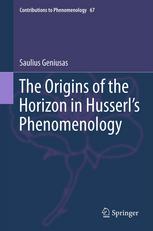

Most ebook files are in PDF format, so you can easily read them using various software such as Foxit Reader or directly on the Google Chrome browser.
Some ebook files are released by publishers in other formats such as .awz, .mobi, .epub, .fb2, etc. You may need to install specific software to read these formats on mobile/PC, such as Calibre.
Please read the tutorial at this link: https://ebookbell.com/faq
We offer FREE conversion to the popular formats you request; however, this may take some time. Therefore, right after payment, please email us, and we will try to provide the service as quickly as possible.
For some exceptional file formats or broken links (if any), please refrain from opening any disputes. Instead, email us first, and we will try to assist within a maximum of 6 hours.
EbookBell Team

4.0
6 reviewsThis volume is the first book-length analysis of the problematic concept of the ‘horizon’ in Edmund Husserl’s phenomenology, as well as in phenomenology generally. A recent arrival on the conceptual scene, the horizon still eludes robust definition. The author shows in this authoritative exploration of the topic that Husserl, the originator of phenomenology, placed the notion of the horizon at the centre of philosophical enquiry. He also demonstrates the rightful centrality of the concept of the horizon, all too often viewed as an imprecise metaphor of tangential significance. His systematic analysis deploys both early and late work by Husserl, as well as hitherto unpublished manuscripts. Opening out the question to include that of the origins of the horizon, the book explores the horizon as philosophical theme or notion, as a figure of intentionality, and as a signification of one’s consciousness of the world—our ‘world-horizon’. It argues that the central philosophical significance of the problematic of the horizon makes itself apparent in realizing how this problematic enriches our philosophical understanding of subjectivity. Systematic, thorough, and revealing, this study of the significance of a core concept in phenomenology will be relevant not only to the phenomenological community, but also to anyone interested in the intersections of phenomenology and other philosophical traditions, such as hermeneutics and pragmatism.